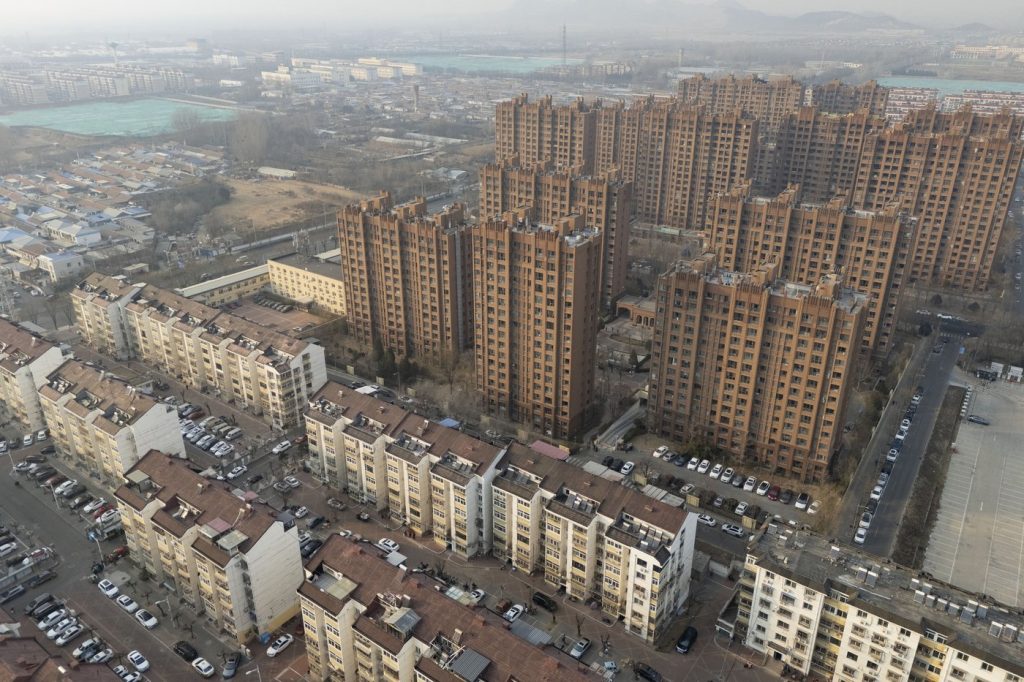BEIJING (AP) – In 2020, Zhou Fujin purchased an apartment near a reputable high school in northeast Beijing, expecting rental income to cover a significant portion of his mortgage. However, the declining value of the apartment, along with a substantial drop in rental income, has severely strained his family's finances in recent years. In the face of this economic turmoil, China is grappling with deflation, which stands in stark contrast to inflationary trends affecting many other countries globally.
The current session of China's parliament, which began Wednesday, is set against a backdrop of economic instability characterized by deflation—a reflection of weak consumer demand and stagnant growth. Economists speculate that the ruling Communist Party may respond with increased government spending or a revision of the annual economic growth target, which has consistently hovered around 5% for the past two years. These entail long-term challenges, notably falling housing prices that inhibit consumer spending while factories continue to produce excess goods.
Statistically, prices across the economy fell in 2023 and 2024, marking the longest deflationary period since the 1960s. The gross domestic product deflator dropped to -0.8% by the end of 2024, indicating a deepening of deflationary trends. Deflation, though an abstract economic phenomenon, has tangible impacts on individuals like Zhou, whose experience encapsulates the broader struggles faced by millions. Zhou's apartment, acquired for 2 million yuan (approximately $275,000), is now valued at around 1.4 million yuan (around $193,000). He financed this purchase with an 800,000 yuan ($110,000) bank loan, while his monthly mortgage payment exceeds 3,000 yuan ($413). Meanwhile, rent has fallen from 2,300 yuan ($316) to 1,700 yuan ($234) monthly.
The decline in real estate value accelerated following the government's crackdown on excessive borrowing by developers, which plunged the housing sector into crisis and resulted in widespread defaults among property companies. As the head of a real estate brokerage, Zhou's business has been financially challenged for four years, leading him to diversify into home decoration services to remain afloat. He highlights that his principal expenses revolve around housing, transportation, and his children's education, necessitating a drastic reduction in discretionary spending, such as travel.
Lu Wanyong, who operates a picture framing shop in Beijing, has seen customer traffic plummet from over a dozen per day pre-pandemic to just one or two currently. Many customers are opting to repair rather than replace picture frames. With dwindling savings, Lu expresses concern over his ability to meet monthly shop rent of 6,000 yuan ($825) and is contemplating a shift to other industries, despite being unfamiliar with potential alternatives.
Deflation poses a complex challenge for governments, as it requires addressing deep-seated economic issues. In China, a mix of overproduction—due to industry capacity outpacing consumer demand—and a consumer reluctance to spend are central to the problem. The housing crisis alone has erased an estimated $18 trillion from household wealth, compounded by job losses stemming from the COVID-19 pandemic. As He-Ling Shi, an associate professor at Monash University, notes, falling housing prices alter perceptions of wealth, reducing household consumption and increasing savings behavior among the public.
When deflation occurs, corporate profitability shrinks, potentially initiating a "deflationary spiral." This phenomenon leads to layoffs, diminished household income, and further reductions in consumption, raising the specter of economic recession. Fitch Ratings has warned of the entrenched nature of deflation in China, urging policymakers to develop strategies that stimulate demand.
Politically, the topic of deflation is sensitive for Chinese leaders, who have been gradually lowering interest rates and modifying mortgage requirements. They have also introduced initiatives that encourage local governments to purchase unsold properties for affordable housing and urged banks to increase lending. However, officials are often reluctant to openly address deflation to avoid inciting further public panic, which could further depress consumption.
While some economists stress that significant economic rebalancing necessitates enhancing consumer purchasing power and scaling back on unproductive investments, the Chinese government has largely focused on immediate measures such as issuing spending vouchers. Economists advocate for more fundamental reforms to improve household incomes, with suggestions ranging from enhancing the healthcare and education systems to reinforcing social security. Overall, short-term measures to increase disposable income are crucial for stimulating consumption, but sustainable long-term solutions will depend on structural reforms across various sectors of the economy.










